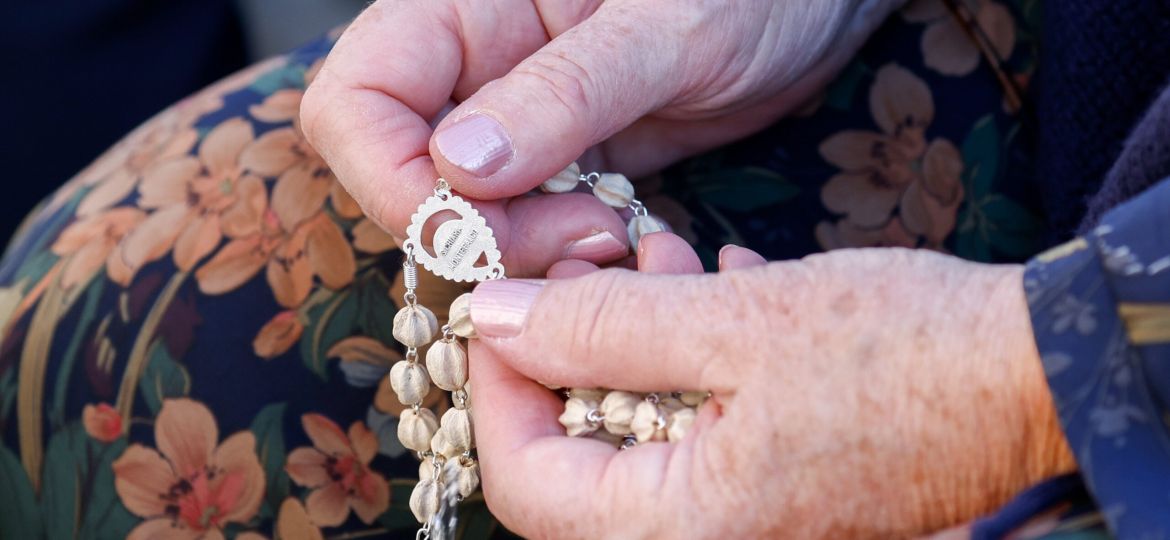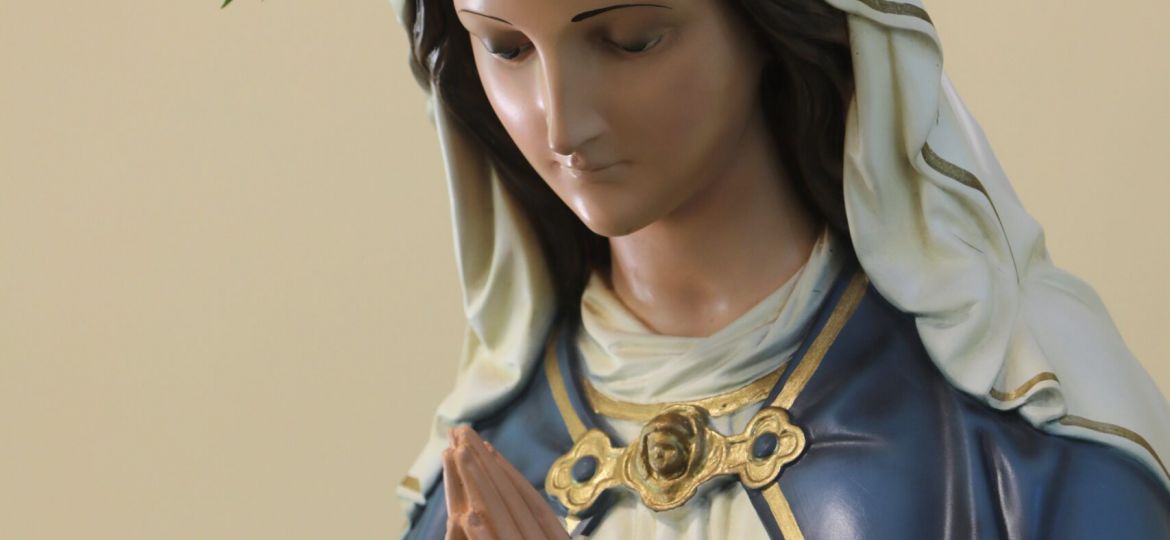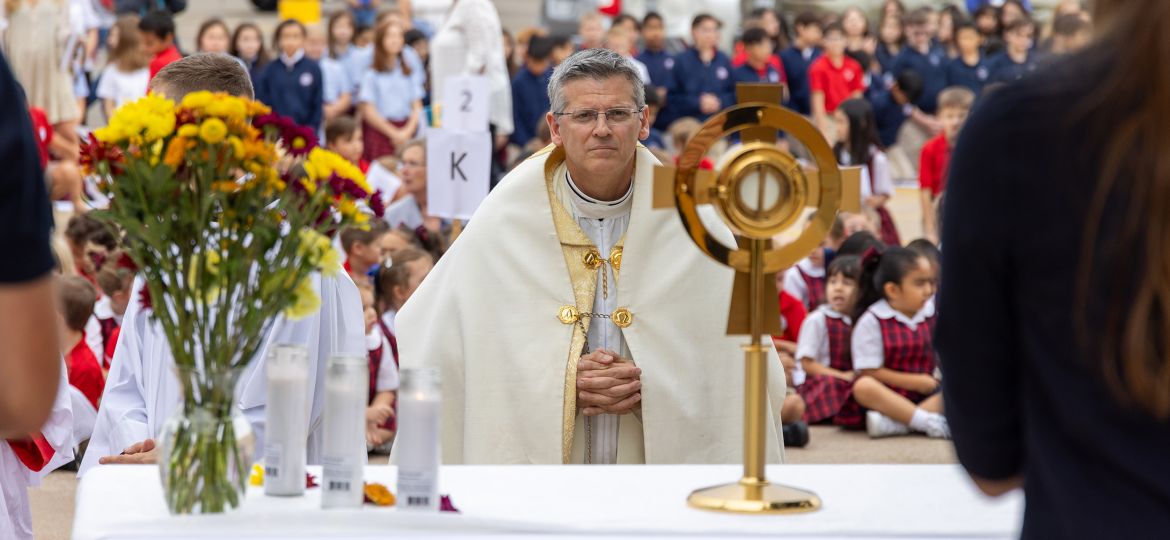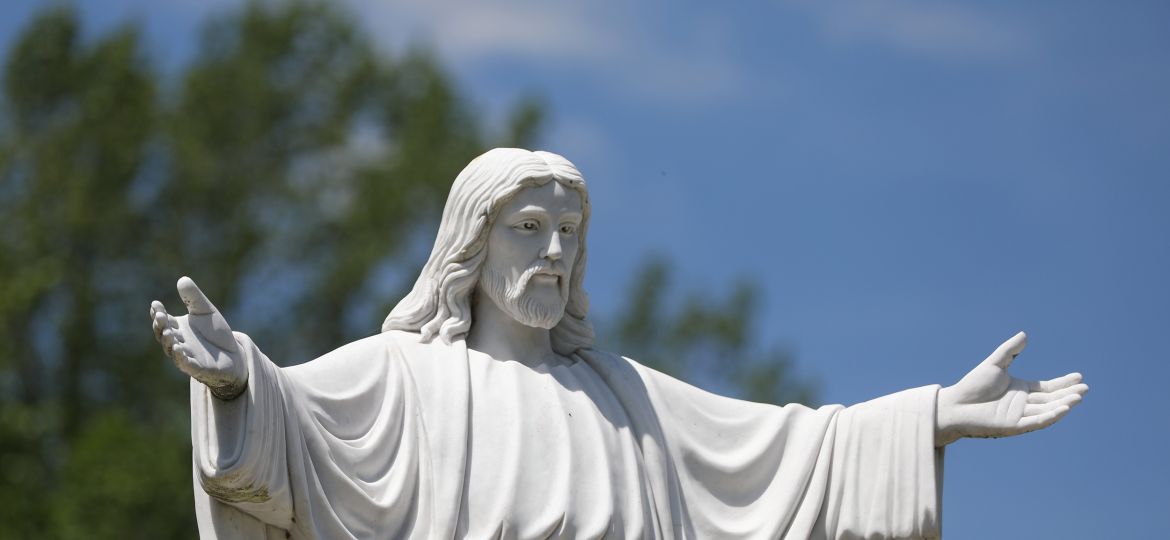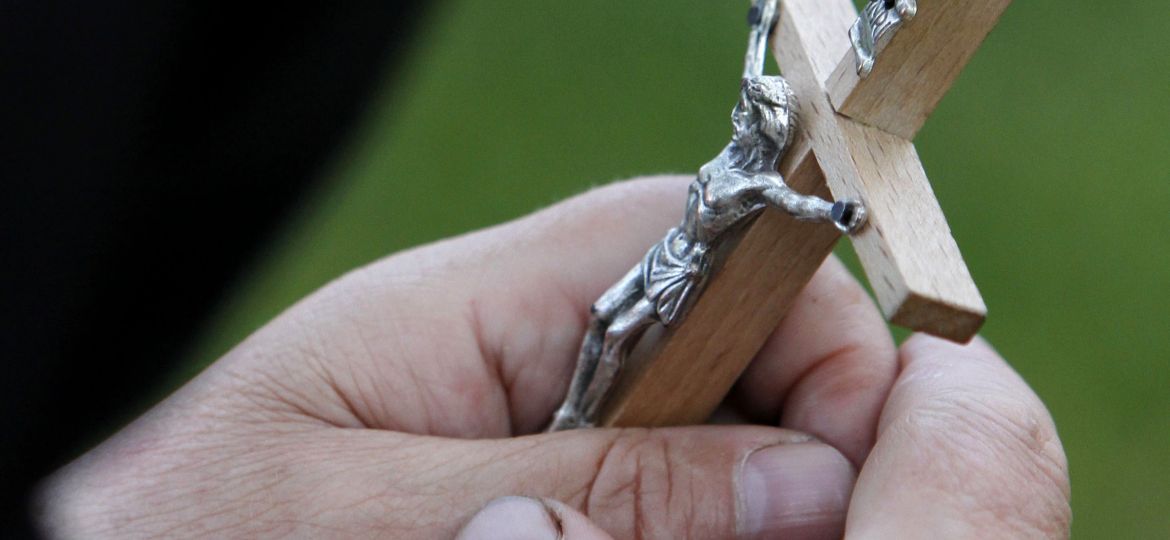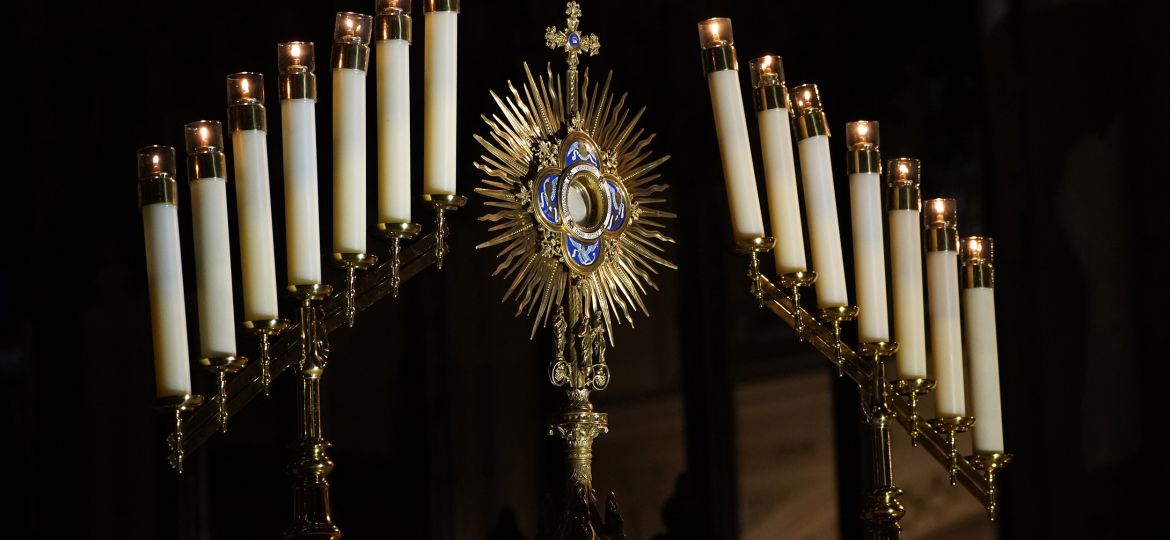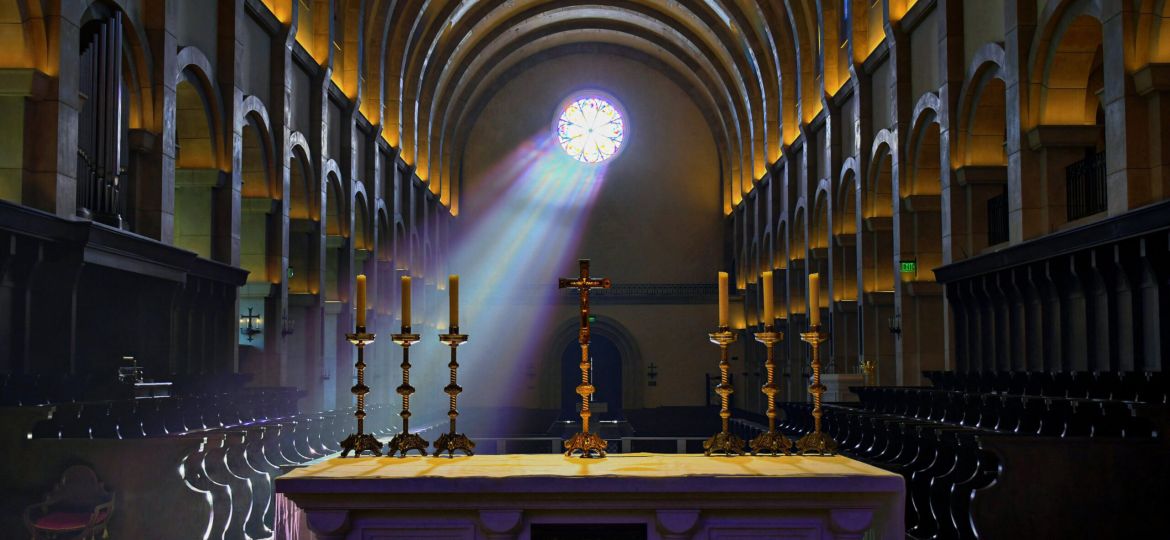In my experience, one of the most difficult aspects of being a priest and teacher is the thought that my actions have had negative effects on others.
Every October, as Catholics, we celebrate Respect Life Month. This month-long campaign of prayer and advocacy began in October of 1972, the year before Roe v. Wade. Fifty years later, and following the historic overruling of Roe last year, the Church continues to pray for the protection of every human life, to defend it from conception to natural death, and to witness to the dignity of each and every human person.
The current Eucharistic Revival in the United States is generating a discussion of the role of Eucharistic Adoration in the life of the Church. While the practice is encouraged by many, some people have noted that devotions such as exposition of the Blessed Sacrament and Eucharistic processions were invented and popularized in the medieval period, and thus were not part of the early Church’s liturgical worship.
There is a type of combo that is inseparable and, in fact, indivisible. This is the combo of Christ and the Church. Human intellect or wisdom (or lack of wisdom) can neither create nor separate such a combo. This is a divine combo, a divine presence in the world.
The third Sunday in September is designated as “Catechetical Sunday” by the United States Conference of Catholic Bishops, or USCCB. It is a day to celebrate the ministry of catechesis, the passing on the faith. This year’s theme, “Come to me all who labor and are burdened,” (Matthew 11:28) reminds us of the invitation we receive from the Lord Jesus to follow Him and the promise that He doesn’t want to add to our burdens; he wants to lighten them. Observing Catechetical Sunday is a great way show appreciation to our catechists for the hard work that they do accompanying the many people of all ages throughout the year. It is in their dedication, efforts, and true servant’s heart that they continually give of themselves by helping so many families in their faith journey.
Mothers are gifted by God with unique insight into the mystery of life and its connection, for now, to the tragedy of death. Just think of Mary. Her maternity extended from Bethlehem to Calvary: to be a mother as God desires, Mary had to give life to a person destined to pass through death. Her fiat or “yes” to life at the Annunciation is not merely biological; it is a cooperation with God’s whole Providence for the one she births. That means that an ‘openness to life’ is at the same time a certain openness to death, and thus, for now, the joy of motherhood is always accompanied by pain (Gn 3:16; Jn 16:21).
In the Judeo-Christian worldview, the wilderness has always been a place of divine encounter. Think Moses and the burning bush, Elijah on Mount Horeb, Jesus in the desert. Often God leads his people into the wild places in order to reveal himself in a new way and to strengthen them for mission. And He is still doing it today.
As we grow in life, we also grow in the things that interest us. Some succeed in accomplishing a dream that they had hoped for. Others aren’t so lucky. But, in any case, life is a journey, and we keep moving toward one destination or another. In whichever direction we find ourselves heading, there is always an important need for a life journey companion — someone who will help us, guide us, shape us and tell us the truth about the direction of our journey. Some people find such companionship in friends, some in family, and others in different people.
Fortitude is the virtue of courage and strength. It enables us to endure adversity without giving in to despair. With fortitude we learn how to persevere despite difficult life situations. When life becomes difficult and we are faced with choices, it is the virtue of fortitude that helps us to withstand adversity without making wrong choices. It gives us the strength to choose the right course of action, regardless of the cost or the consequences that our decision may bring to our lives or our situation.
When people die after long lives, we sometimes limit our sadness by turning their funerals into “celebrations of life” by sharing endearing stories about them, and sometimes we can even experience gratitude that the person is at rest after a difficult illness. But what do we “celebrate” for children who didn’t have much chance to live?

